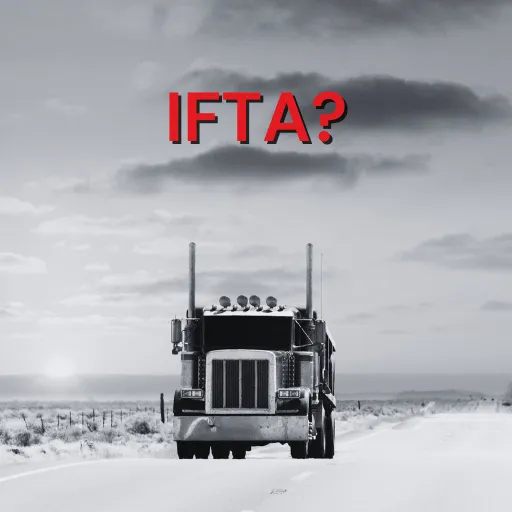| FREE Consult!
Read Our Latest Blog
These Blog Posts are to cover some of the most relevant topics, questions, and issues we see that is relevant to truckers and companies, regardless of size and load.

Understanding IFTA
Understanding IFTA: A Complete Guide for New Owner-Operators
The International Fuel Tax Agreement (IFTA) represents one of the most significant compliance requirements for trucking operations. While essential for interstate commerce, IFTA compliance often becomes a source of stress and confusion for both owner-operators and fleet managers alike. This comprehensive guide will help you understand your obligations and establish effective compliance processes.
What is IFTA and Why Does It Matter?
IFTA streamlines the reporting of fuel use taxes for vehicles operating across multiple jurisdictions. Instead of filing separate returns with each state or province, carriers file one quarterly return with their base jurisdiction, which then distributes the appropriate taxes to other member jurisdictions.
This agreement covers commercial vehicles that:
Have two axles and a gross vehicle weight exceeding 26,000 pounds
Have three or more axles regardless of weight
Operate across multiple IFTA member jurisdictions
Essential IFTA Compliance Requirements
Your IFTA compliance obligations begin before your truck ever crosses a state line. Understanding these requirements helps prevent costly mistakes and potential audit issues.
Documentation Requirements
Accurate record-keeping forms the foundation of IFTA compliance. For each trip, you must maintain:
Detailed mileage records for each jurisdiction
Fuel purchase receipts or invoices
Trip reports or driver logs
GPS records (if applicable)
These records must be maintained for four years from the filing date. During an audit, insufficient documentation can result in denied credit for tax-paid fuel purchases, leading to significant additional tax assessments.
Quarterly Filing Obligations
IFTA returns must be filed quarterly, even if you had no interstate operations during that period. The filing deadlines are:
First Quarter (January-March): April 30
Second Quarter (April-June): July 31
Third Quarter (July-September): October 31
Fourth Quarter (October-December): January 31
Common Compliance Challenges
Many operators face similar challenges with IFTA compliance:
Incomplete Records: Missing or incomplete documentation represents the most common audit trigger. Establishing consistent record-keeping processes from day one proves essential.
Late Filings: Missing deadlines can result in penalties and interest charges, even if you owe no taxes. Many jurisdictions impose minimum penalties regardless of the tax amount.
Calculation Errors: Manual calculations across multiple jurisdictions increase the risk of errors. Even small mistakes can compound across quarters.
Best Practices for IFTA Management
Implementing effective IFTA management systems saves time and reduces compliance risks:
Implement Digital Solutions: Modern fleet management systems can automatically track mileage by jurisdiction and integrate fuel purchase data, significantly reducing manual record-keeping.
Establish Regular Review Processes: Don't wait until filing deadlines to review your documentation. Regular monthly reviews help identify and correct issues before they become problems.
Maintain Organized Records: Create a systematic filing system for all fuel receipts and trip documents. Digital storage solutions can make retrieval easier during audits.
When to Consider Professional Help
While many operators handle IFTA filing themselves initially, several scenarios suggest professional assistance might be beneficial:
Administrative tasks are taking time away from revenue-generating activities
You're experiencing difficulty maintaining accurate records
Your operation is growing beyond a single truck
You've received audit notices or compliance warnings
Professional IFTA services can often save money in the long run by ensuring accurate filings, preventing penalties, and freeing up your time to focus on operations.
Moving Forward with Confidence
IFTA compliance doesn't have to be overwhelming. Whether you're handling compliance in-house or considering professional support, understanding these basics helps you make informed decisions about your operation's needs.
Want to learn more about simplifying your IFTA compliance? Schedule a free consultation to discuss your specific situation.

